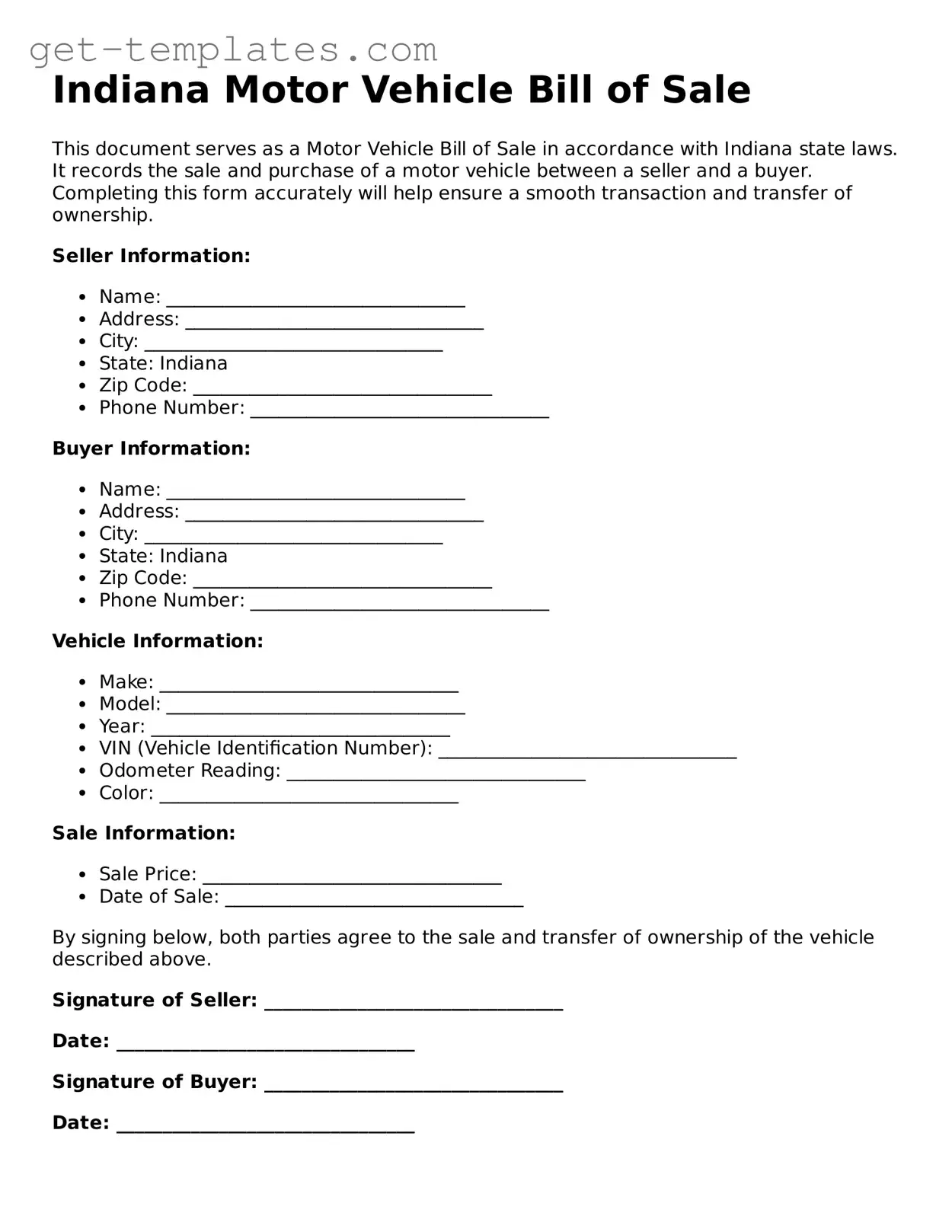Attorney-Approved Motor Vehicle Bill of Sale Document for Indiana
The Indiana Motor Vehicle Bill of Sale form is a legal document that records the transfer of ownership of a motor vehicle from one party to another. This form serves as proof of the sale and includes essential details such as the vehicle's identification number, sale price, and the names of both the buyer and seller. Completing this form is crucial for ensuring a smooth transfer of title and registration with the state.
Get Document Online

Attorney-Approved Motor Vehicle Bill of Sale Document for Indiana
Get Document Online
You’re halfway through — finish the form
Finish Motor Vehicle Bill of Sale online — edit, save, download made easy.
Get Document Online
or
⇓ PDF Form
